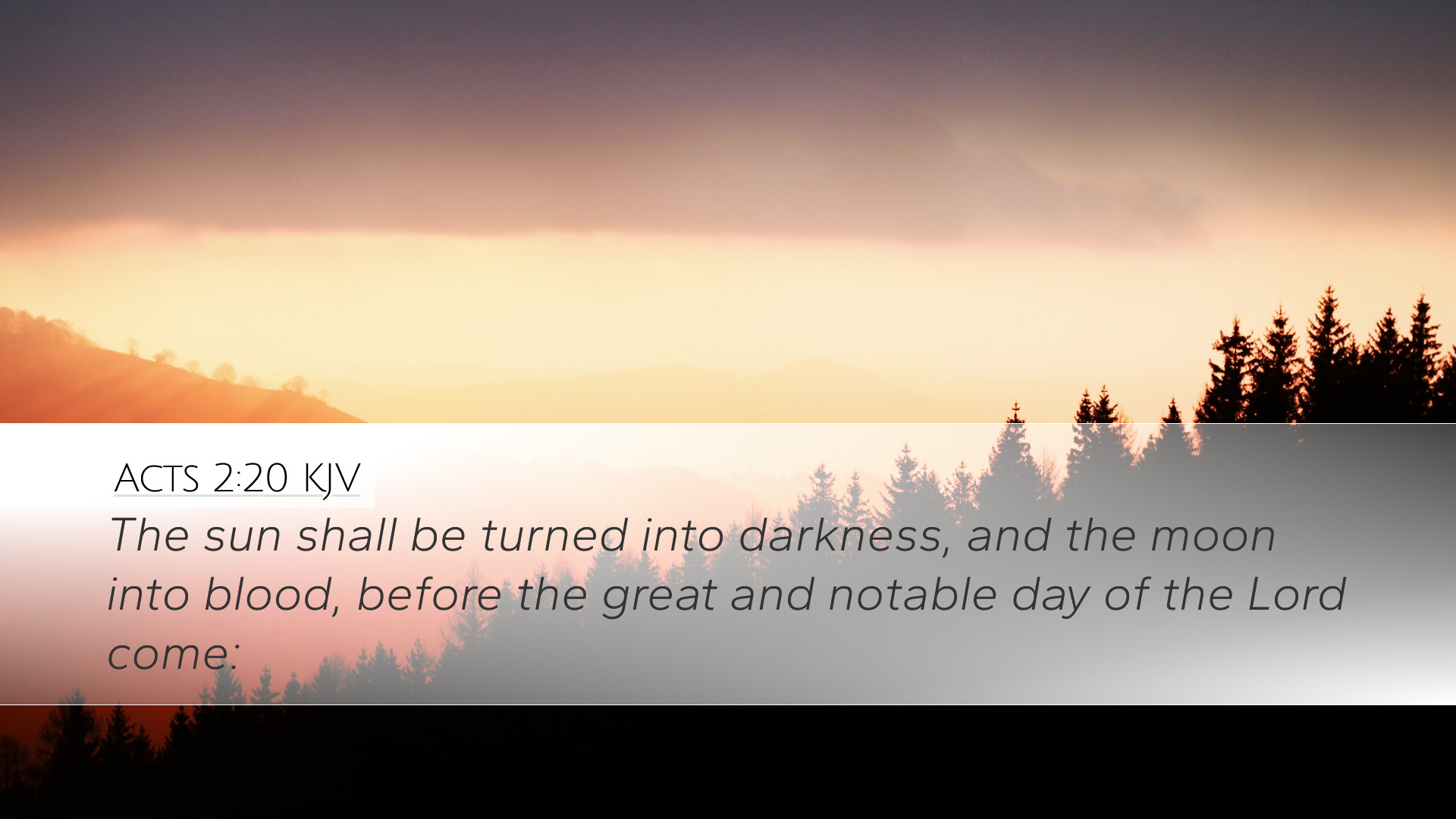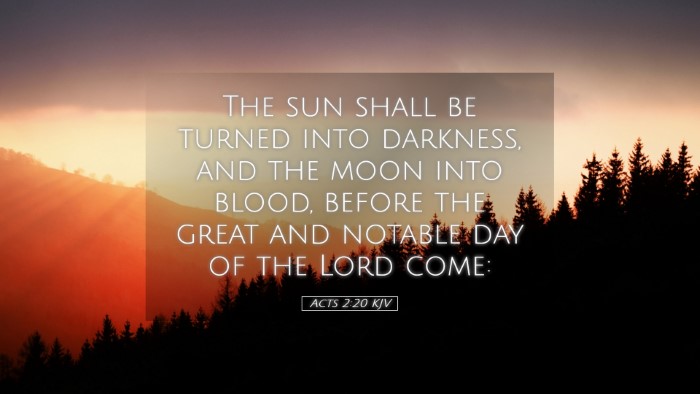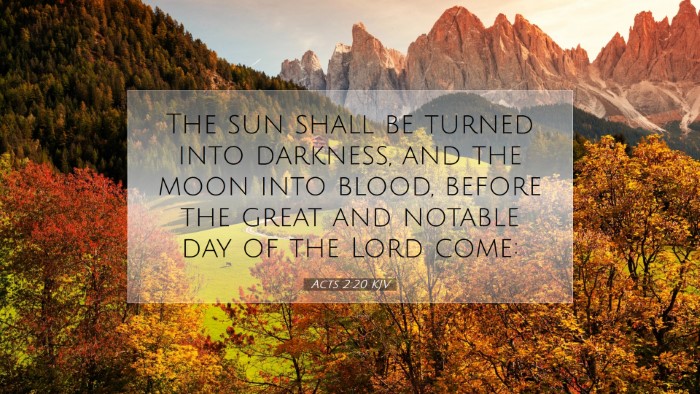Commentary on Acts 2:20
Verse Text: "The sun shall be turned into darkness, and the moon into blood, before that great and notable day of the Lord come."
Introduction
This verse, part of Peter's sermon at Pentecost, draws upon prophecies from the Old Testament, particularly from Joel 2:31. The significance of this passage extends beyond its immediate context, offering profound insights into eschatological themes, divine judgment, and the hope of redemption.
Interpretative Insights
- Historical Context:
The Pentecost event marks a transformative moment for the early church. Peter's quotation of Joel places the outpouring of the Holy Spirit in the framework of prophetic fulfillment. This historical setting adds weight to the declared message of salvation.
- Darkness of the Sun:
Matthew Henry elaborates on the metaphor of the sun being turned into darkness, representing divine judgment. This can symbolize the spiritual blindness that envelops humanity, calling attention to the need for light and truth through Christ.
- The Blood Moon:
Albert Barnes associates the "moon into blood" imagery with distress and upheaval. He references the historical calamities that precede significant events, suggesting that such occurrences serve as alarms for the coming of the Lord.
- Great and Notable Day:
Adam Clarke emphasizes the importance of the "great and notable day" as a pivotal point in eschatological expectation. This terminology indicates the irrefutable nature of God’s intervention in human history and the ultimate accountability of humanity before Him.
Theological Implications
- Apocalyptic Imagery:
The vivid imagery serves to awaken the audience to the seriousness of God's impending intervention in the world – a theme resonant throughout Scripture, particularly in prophetic literature.
- Fulfillment of Prophecy:
This verse encapsulates the essence of fulfilled prophecy. The outpouring of the Spirit on Pentecost is itself a proof of God’s faithfulness to His word, inviting readers to consider the continuity of Scripture and divine promise.
- Call to Repentance:
In light of the serious warnings about the "great and notable day," there is an implicit call for repentance. The context urges believers to respond to divine calling with urgency, acknowledging their need for grace and truth.
- Expectation of Christ’s Return:
This passage not only anticipates historical events but points towards the ultimate second coming of Christ. The metaphors compel believers to remain vigilant and hopeful, maintaining an active faith as they await the fulfillment of God's promises.
Expository Reflections
Peter’s reference to these signs is a blend of urgency and hope. The darkness heralding the Lord's return serves as a reminder of every believer's call to mission and witnesses. The text compels us to live in anticipation of Jesus’ return, cultivating a heart ready for the day when all will be made right.
Conclusion
Acts 2:20 is a rich verse encapsulating the expectations of God's people regarding His sovereign acts in the world. The imagery of cosmic upheaval is a profound reminder of God’s ultimate authority and the dire need for humanity to respond to His redemptive calling. As we explore this text, we are encouraged to delve deeper into the nature of prophecy, the promise of the Holy Spirit, and the hope we have in Christ as we live in the light of His return.


